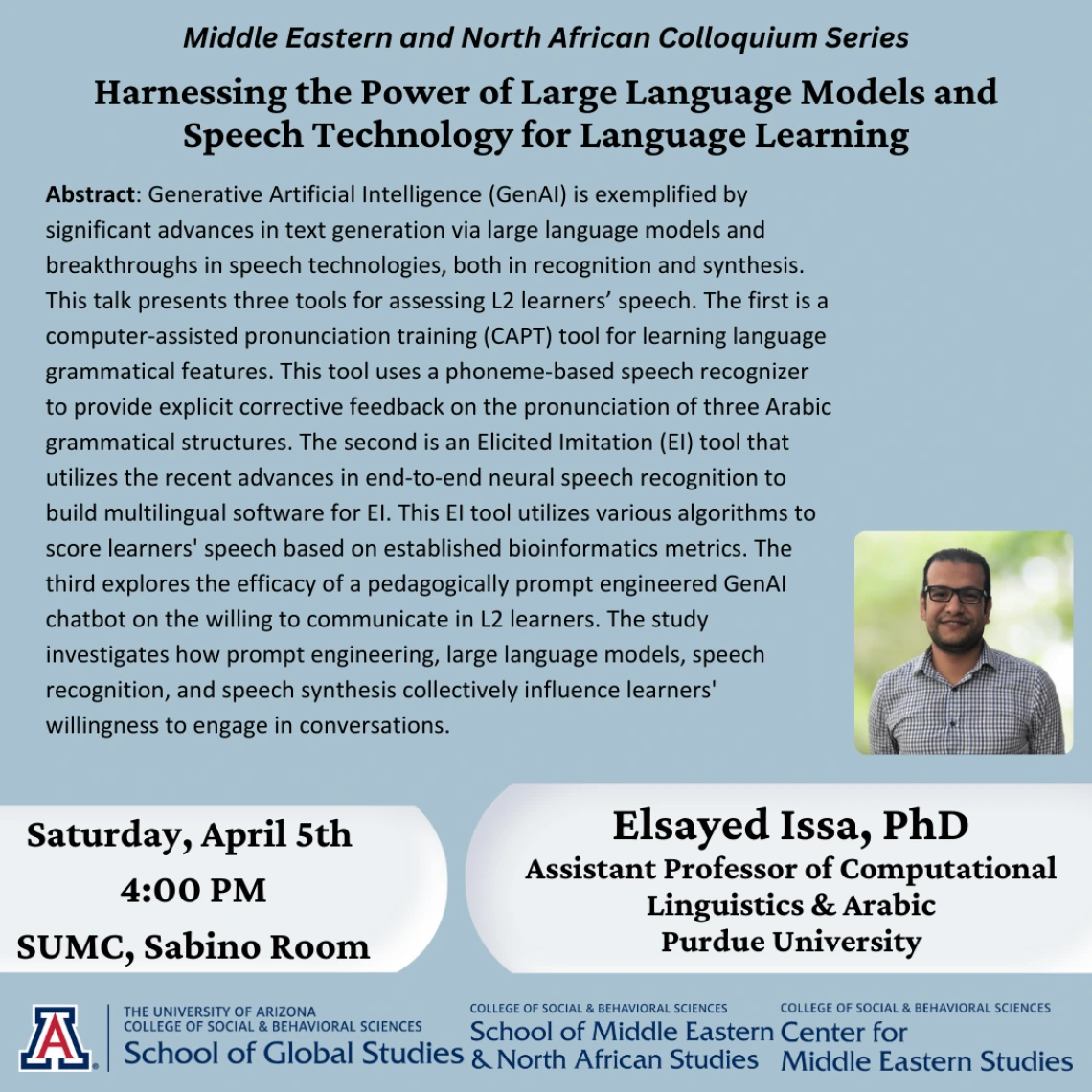Harnessing the Power of Large Language Models and Speech Technology for Language Learning

When
Where
Middle Eastern and North African Colloquium Series
Harnessing the Power of Large Language Models and Speech Technology for Language Learning
Bio: Elsayed Issa is an Assistant Professor of Computational Linguistics and Arabic in the School of Languages and Cultures. Elsayed holds a Ph.D. the University of Arizona in Tucson in 2023. He is an interdisciplinary computational linguist and speech technologist. His research interests include Natural Language Processing (NLP), phonology, morphology, education technology, Second Language Acquisition (SLA), Arabic language and linguistics, and conversational AI. He is passionate about building intelligent systems and practical solutions to language acquisition problems utilizing recent advances in NLP and AI.
Abstract: Generative Artificial Intelligence (GenAI) is exemplified by significant advances in text generation via large language models and breakthroughs in speech technologies, both in recognition and synthesis. This talk presents three tools for assessing L2 learners’ speech. The first is a computer-assisted pronunciation training (CAPT) tool for learning language grammatical features. This tool uses a phoneme-based speech recognizer to provide explicit corrective feedback on the pronunciation of three Arabic grammatical structures. The second is an Elicited Imitation (EI) tool that utilizes the recent advances in end-to-end neural speech recognition to build multilingual software for EI. This EI tool utilizes various algorithms to score learners' speech based on established bioinformatics metrics. The third explores the efficacy of a pedagogically prompt engineered GenAI chatbot on the willing to communicate in L2 learners. The study investigates how prompt engineering, large language models, speech recognition, and speech synthesis collectively influence learners' willingness to engage in conversations.

